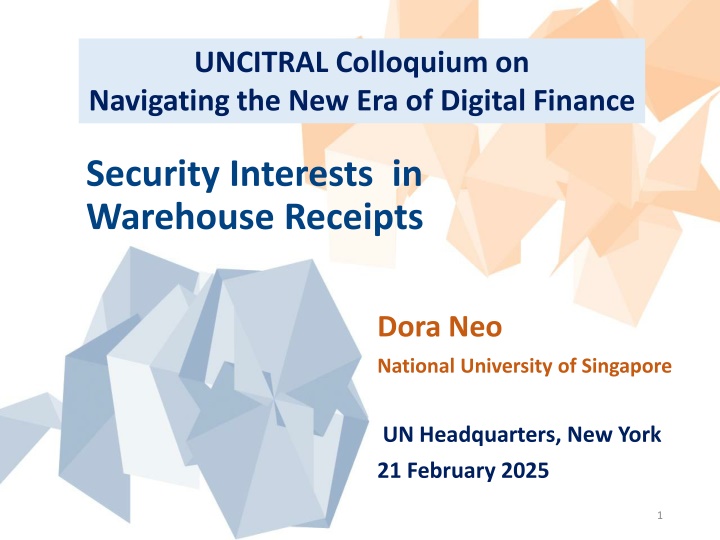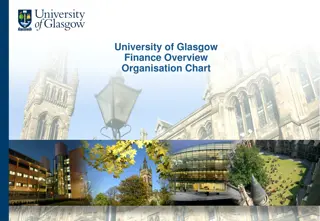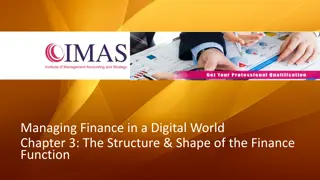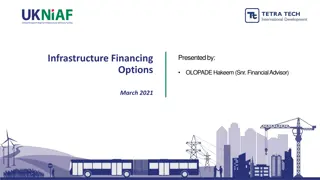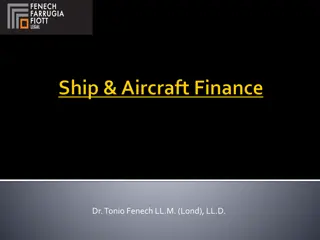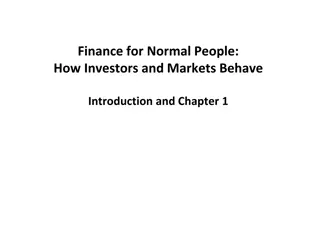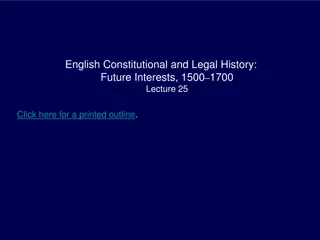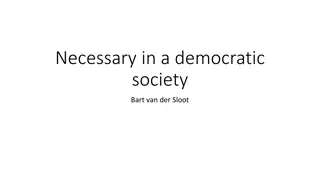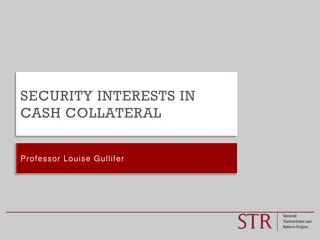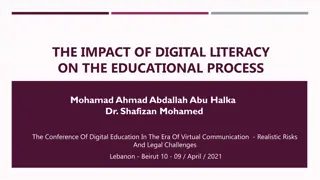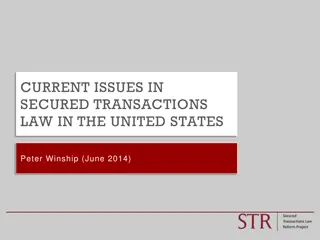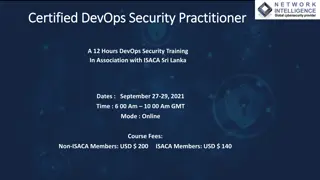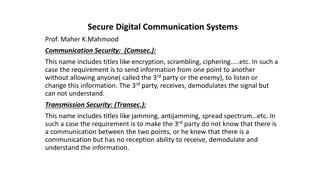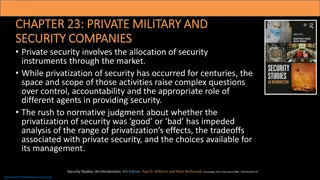Navigating the New Era of Digital Finance Security Interests
This content delves into the UNCITRAL/UNIDROIT Model Law on Warehouse Receipts, addressing important concepts, security rights, and the role of electronic transferable records. It explores the implications of the Model Law of Secured Transactions and the provisions for security rights in warehouse receipts.
Download Presentation

Please find below an Image/Link to download the presentation.
The content on the website is provided AS IS for your information and personal use only. It may not be sold, licensed, or shared on other websites without obtaining consent from the author.If you encounter any issues during the download, it is possible that the publisher has removed the file from their server.
You are allowed to download the files provided on this website for personal or commercial use, subject to the condition that they are used lawfully. All files are the property of their respective owners.
The content on the website is provided AS IS for your information and personal use only. It may not be sold, licensed, or shared on other websites without obtaining consent from the author.
E N D
Presentation Transcript
UNCITRAL Colloquium on Navigating the New Era of Digital Finance Security Interests in Warehouse Receipts Dora Neo National University of Singapore UN Headquarters, New York 21 February 2025 1
Outline of presentation Introduction to UNCITRAL/UNIDROIT Model Law of Warehouse Receipts (MLWR) Does the UNCITRAL Model Law of Secured Transactions (MLST) sufficiently provide for security rights in warehouse receipts? What role can the UNCITRAL Model Law of Electronic Transferable Records (MLETR) play? 2
UNCITRAL/UNIDROIT Model Law on Warehouse Receipts (MLWR) 2024 MLWR allows goods stored in warehouses to be easily used for financing purposes Covers private law aspects of a warehouse receipt (WHR) system Issuance and contents of WHRs Transfers and other dealings in negotiable WHRs Rights and obligations of warehouse operators MLWR Includes electronic and paper warehouse receipts Convertible from one form to the other (Art 14) WHR is issued by warehouse operator Promises to deliver the goods to the holder of the WHR (Art 1(2)(b)) WHR represents the tangible goods covered by the receipt 3
UNCITRAL/UNIDROIT Model Law on Warehouse Receipts (MLWR) 2024 Important concepts in MLWR Negotiability - easily transferable (Art 15) Protected holder (Arts 17, 18) - can get better rights than its transferee MLWR has one provision on security rights in WHRs (Art 19) Third party effectiveness by (1) [registration], (2) control (e-WHRs), (3) possession (paper WHRs) Other rules on security rights in WHRs are left to the laws of individual states 4
UNCITRAL Model Law on Secured Transactions (MLST) Does the MLST sufficiently address security rights in WHRs? Security right in negotiable instrument extends to the tangible assets covered by the negotiable instrument: Art 16 Third party effectiveness of security in negotiable instrument/tangible asset General rule Art 18 MLST: registration; possession Asset specific rules Art 26 MLST: possession of negotiable instrument covering tangible asset Priority Against competing security interests - General rules: Art 29 MLST (a)-(c), depending on method of perfection of the competing security interests - Asset specific rule: Art 49 (1) MLST- a security right perfected by possession of negotiable instrument covering a tangible asset has priority over a competing security right made effective against 3rd parties by any other method (subject to Art 49(2)) 5
UNCITRAL Model Law on Secured Transactions (MLST) Priority (continued) Warehouse operator s lien (Art 25 MLWR) - Art 36 MLST Claims arising by operation of other law have priority over a security right (states can add, & limit amount) Protected holder of a negotiable WHR - Art 49 (3) security rights to the negotiable instrument and the assets covered thereby are subordinate to superior rights under law of negotiable instruments (also Art 18 MLWR) No specific provisions for electronic-WHRs under MLST Options: (1) Amend MLST to cater for e-WHRs (2) Use MLST in tandem with MLETR (next slide) 6
UNCITRAL Model Law on Electronic Transferable Records (MLETR) What are electronic transferable records? digital equivalents of traditional transferable documents eg bills of lading, bills of exchange, warehouse receipts - Transferable documents: paper-based documents that (1) give the holder the right to demand fulfilment of specific obligations noted in them, and (2) allow the holder to transfer this right to someone else by physically handing over the document MLETR gives legal recognition to electronic transferable records that are the functional equivalent of transferable documents Under the MLETR, an electronic-WHR is an electronic transferable record, and provided it satisfies the other criteria in the MLETR, will have the same legal effect as a paper-WHR 7
UNCITRAL Model Law on Electronic Transferable Records (MLETR) Functional equivalence provisions, eg Requirement of possession of a transferable document is met by the equivalent requirement of control of a transferable electronic record Art 11(1) MLETR: A reliable method must be used (a) To establish exclusive control of that electronic transferable record by a person; and (b) To identify that person as the person in control. MLETR does not change the existing law applicable to transferable documents (Art 1(2) MLETR). The substantive law will apply equally to the electronic transferable record as it does to the transferable document. Domestic example: UK Electronic Trade Documents Act 2023 provides for certain electronic trade documents to be accorded the same legal status as their paper equivalents if they meet specified criteria 8
Conclusion MLWR needs to be supplemented by rules regarding security rights for paper- and electronic-WHRs MLST provides rules on security rights that are suitable for paper-WHRs but are not tailored for electronic-WHRs. One option is for MLST to be amended to cater for electronic-WHRs. Another option: In its current form, MLST can be suitable also for electronic-WHRs if it operates in tandem with the MLETR. MLETR will give legal effect to electronic-WHRs based on the functional equivalence principle with paper-WHRs. The same substantive rules (MLST) will then apply to electronic-WHRs as they do to paper-WHRs. For this to happen, MLETR countries can opt to enact MLWR without the electronification provisions. 9
